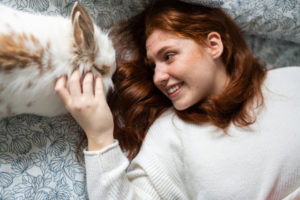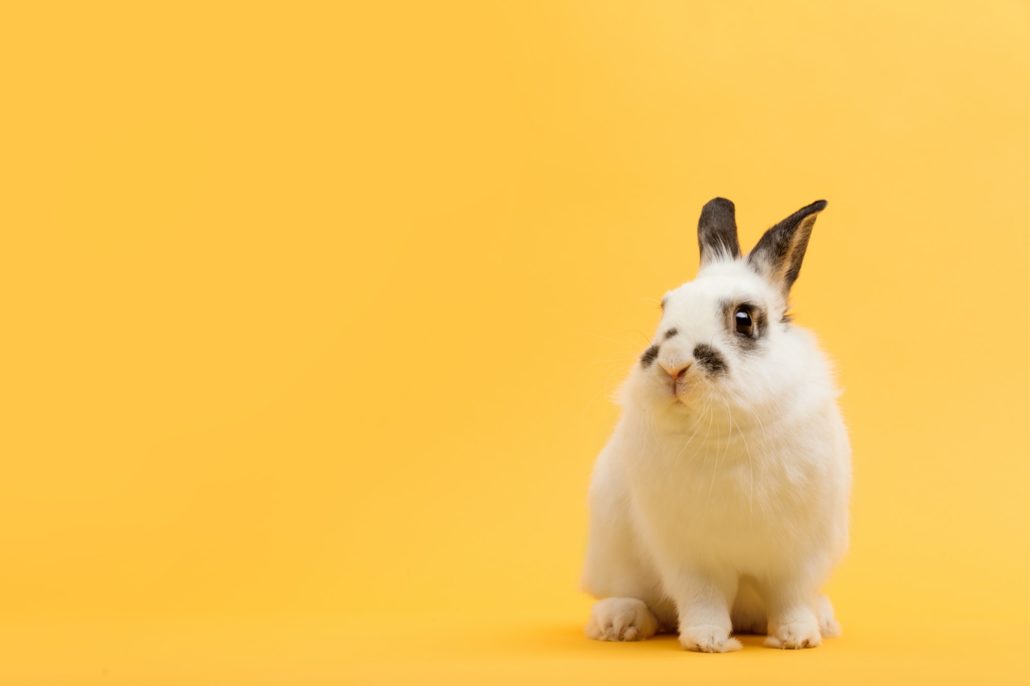
3961 Hastings Street
Burnaby, BC V5C 2H8
604 291 6666
Client Support
Mon - Thu: 8AM - 6PM | Fri: 7AM - 5PM
Online store always open
Burnaby, BC V5C 2H8
Client Support
Online store always open
We are very happy to tell you that our veterinary clinic has the resources and facilities needed to provide rabbit examinations!

In addition to dogs and cats, rabbits are an increasingly popular pet in the Vancouver and Burnaby areas. Their floppy ears, fluffy tails, and hops are all very cute! Don’t forget that rabbits do require some very specific pet care however.
Hastings Veterinary Hospital in Burnaby, BC takes your pet rabbit’s needs seriously. We pride ourselves in making checkups as stress-free as possible. With our digital radiology equipment we are able to offer on-site x-rays for diagnostics when your pet rabbit is ill or injured. With our in‐house pharmacy, we are able to assist with finding the right medication to help with any potential illness that may affect your rabbit.
Like cats and dogs, taking care of a rabbit will require visiting your veterinarian for routine checkups about once a year. Regular exams and checkups will benefit both you and your rabbit by identifying and catching early signs of illnesses and health problems. Baby and adult rabbits cannot tell you what is wrong with them, so early detection during an exam can often save your pet from unnecessary suffering, as well as save you money with early treatment.
During a checkup, we will examine the following:
A healthy looking rabbit is alert and inquisitive, and depending on their breed the ears should be erect. You should always report any signs that seem abnormal in your rabbit to your vet. They will work with you to address and treat the following signs of illness in rabbits:
Your rabbit won’t tell you if they are not feeling well but we certainly can after we examine them! During their annual checkup, you will have the opportunity to ask advice about their diet, behavioural problems, or any concerns you have about your rabbit.
Many people make the assumption that rabbits can live on carrots and lettuce alone, but this is simply not true. While vegetables should be included in their regular diet, grass hay (timothy) is in fact the best rabbit food that you can give to your pet.
Many people make the assumption that rabbits can live on carrots and lettuce alone, but this is simply not true. While vegetables should be included in their regular diet, grass hay (timothy) is in fact the best rabbit food that you can give to your pet.
The ideal rabbit diet consists of fresh grass hay, good quality pellets that are relatively high in fiber (20-25% crude fiber), and fresh veggies.
Fruits can be given but only very sparingly; do not make fruit the staple of your rabbit’s diet. Fresh fruit is best provided to your rabbit as a treat. Coloured pellets are not recommended; pellets of the same shape and colour are encouraged to avoid nutritional deficiencies in your rabbit’s diet.
Avoid giving your rabbit any nuts, seeds, crackers, bread, and cereal. The vegetables you should avoid giving as well are onions, cabbage, and uncut celery. Remember, only give your rabbit a very small amount of fruit!
We prepared a series of blogs with everything you need to know about rabbit care.
Sign up for our newsletter to receive the best tips, articles and other resources for your pet’s health.
08:00 AM - 6:00 PM
08:00 AM - 6:00 PM
08:00 AM - 6:00 PM
08:00 AM - 6:00 PM
07:00 AM - 5:00 PM
We are closed